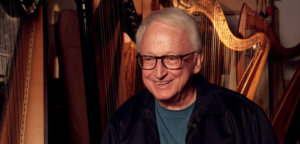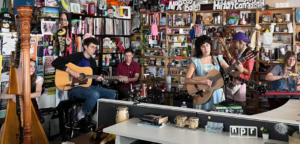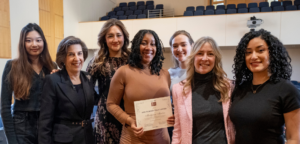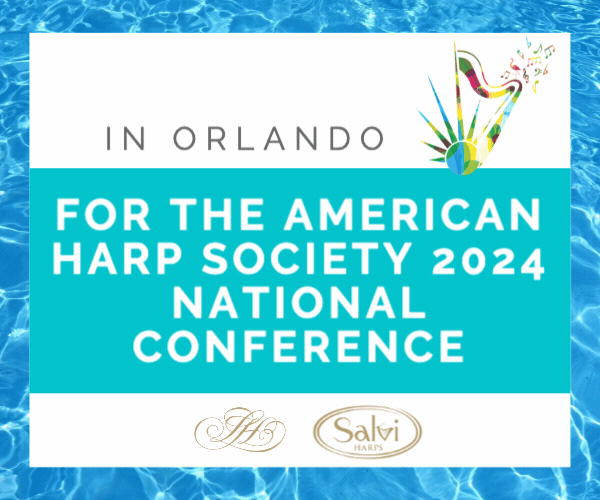The USA International Harp Competition has just named Jeremiah Siochi winner of its 5th Solo Harp Composition Contest (read more). We caught up with him to find out more about his winning composition, Sublimation.
What inspired you to enter this contest?
My sister (who is a harpist) brought the contest to my attention shortly after I had written the piece. I figured, “why not?” I had no idea what to expect, as I knew there would be a lot of great composers and exceptional new music.
Tell us about the piece.
The most interesting aspect of the piece, to me, is the way it displays two different qualities of the harp —one that is percussive and rhythmic and one that is melodic and lyrical. Throughout its composition I asked myself how I could I make compelling new music for the harp. While not shying away from them completely, I didn’t want to rely too much on the traditional idiomatic gestures of harp music. Percussive knocks on the soundboard comprise most of the opening section of the piece. Obviously the soundboard effect has been used many times in harp music, but I wanted to make this element the focal point of the work, almost treating the harp as a drum and establishing a rhythmic groove before even the suggestion of melody or harmony appears. The pitched notes do gradually build up and it does then transition to an unabashedly flowing and lyrical passage. There is both tension and a balance between these elements that drives the piece.
Is this your first composition for the harp?
Not my first piece to incorporate harp—I wrote a chamber work for harp and cello several years back that’s seen some performances. But this is the first solo harp composition I’ve written.
Your sister is a harpist. Do you think being around her growing up influenced your ability to write well for the harp?
Absolutely! I don’t know if I would have even considered writing music for the harp without her, much less have a source to understand how to write for the instrument well. Since I’m coming from a classical piano background growing up, that’s my default stance when I approach new music and I have to consciously pull away from that pianistic impulse and really consider the strengths and limitations of the instrument I’m composing for. As a harpist she helped and reminded me to not get stuck in that mindset. I think having the constant influence of her playing and discussing harp music growing up really opened my ears to what is so special about the instrument.
Can you give us some background about you? Where do you study, what are your goals, etc.
I studied composition at Duke University. It wasn’t my major there but still a huge part of my academic pursuits. Not following composition professionally at the time—working a different day job —but still spending lots of time composing, songwriting, and performing. Goals: maybe go back to school someday to study composition again? Who knows what the future holds
Given your success in this competition, do you think you’ll be inspired to write more works for harp in the future?
I am definitely inspired! I think it shows me that because the jury of harpists selected my work to be learned and performed as part of the competition, there must be something about it that makes harpists want to engage with my writing for the instrument. To me that’s a huge motivation to write more for the harp.













